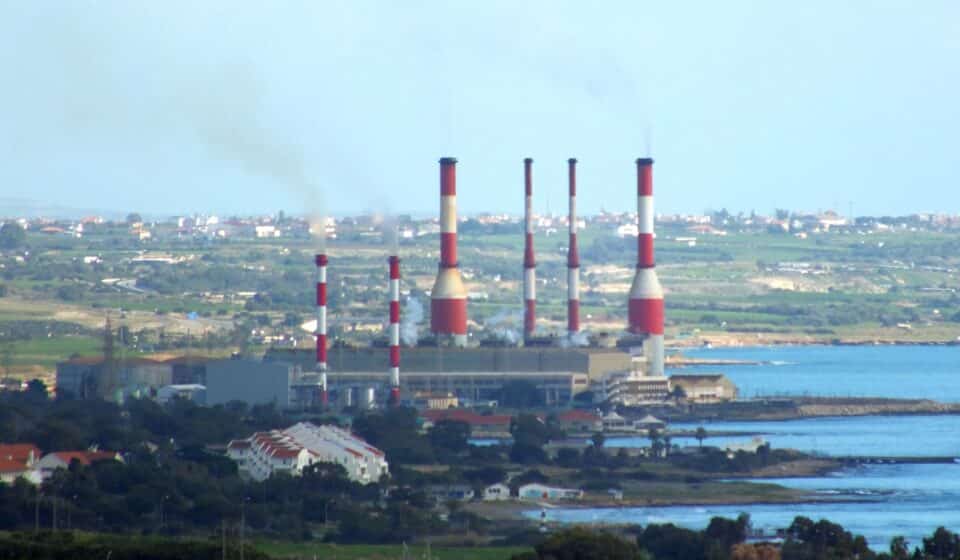People living near the Dhekelia power plant expressed their frustration on Monday at the pollution spewed out by the outdated facility, but energy officials said there is no way to cut back on the facility’s operation – at least not before Cyprus starts using natural gas for power generation.
The matter was discussed at the House human rights committee, which heard testimony from residents around the power plant describing life as almost unbearable because of the soot.
Opposition party Akel said it was considering tabling a bill to amend the constitution, so that it enshrines the right to a safe and clean environment.
MPs heard from Frangekos Kekkou, a resident of Ormidia village located close to the power station.
“The lemons are black and deformed,” he said.
“Twenty years ago, I remember we gathered in the square to discuss this. The only thing that has changed since then, is that most people have left and shops have shuttered.”
According to Kekkou, the Electricity Authority of Cyprus, which operates the power plant, has given local residents certain offsets – such as funds for expanding their church and for building a futsal pitch.
“The issue is not the offsets,” he remarked. “What good does it do to build a school? So that children can get exposed to the pollution?”
MPs also heard that readings of pollutants in the area were high – 1,700 mg per cubic metre of sulfur dioxide, 450mg per cubic metre of nitrogen oxide, and 50mg per cubic meter of micro-particles.
An official with the Electricity Authority of Cyprus said steps have been taken to somewhat reduce the emission of air pollutants.
But, the official added, “there cannot be a substantive improvement [in air quality] unless the power plant operates fewer hours.”
This, however, is not technically feasible at the moment, because reducing the hours during which the Dhekelia plant operates would destabilise the electricity grid as a whole.
Weighing in, Giorgos Papageorgiou of the energy ministry likewise stated that “we can’t shut down Dhekelia.”
An official with the Labour Inspection Department said that pollution measurements in the area are “borderline”.
Environmental activist Efi Xanthou said the power plant should have been shut down 15 years ago.
“And so today we’re paying €400 million a year for pollution emissions.”







Click here to change your cookie preferences